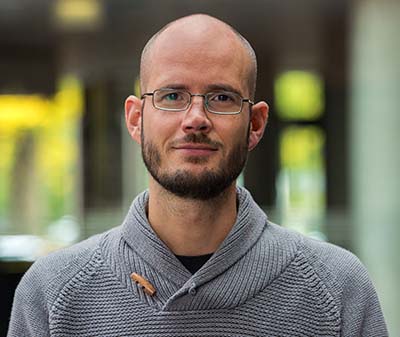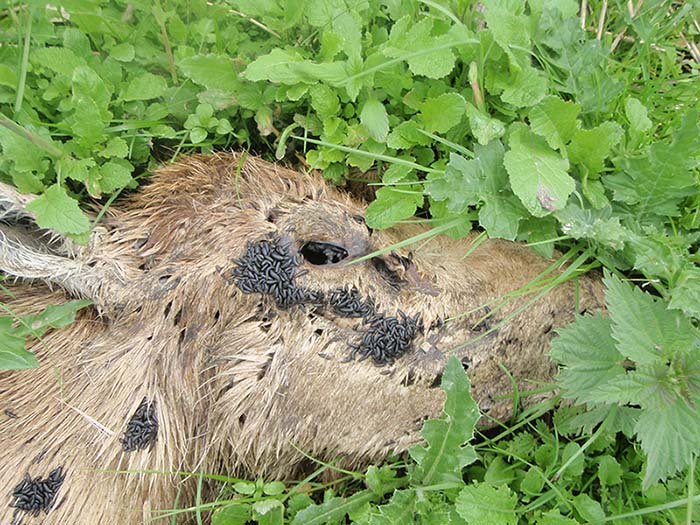Kadavers belangrijk voor planten en insecten in de Oostvaardersplassen
Het laten liggen van dode herten in natuurgebied de Oostvaardersplassen heeft een positief effect op de biodiversiteit in het gebied. De kadavers zorgen niet alleen voor veel meer insecten en andere geleedpotigen op de korte termijn, maar ook op de lange termijn via een verhoogde plantengroei. Planten bij kadavers werden meer dan vijf keer zo groot waardoor het aantal plantenetende ongewervelden op deze planten toenam, en daarmee ook hun predatoren. Dit blijkt uit een onlangs gepubliceerde studie van RUG-onderzoeker dr. Roel van Klink, uitgevoerd voordat de aantallen grote grazers in de Oostvaardersplassen drastisch omlaag werden gebracht in verband met gewijzigd natuurbeheer.

“Dat kadavers belangrijk zijn voor aaseters, was natuurlijk geen verassing voor mij. Maar wel dat ze vijf maanden na dato zulke enorme effecten hebben via de plantengroei. De insecten die op deze planten leven profiteren enorm van de kadavers”, zegt Roel van Klink. Deze resultaten werpen ook een andere blik op de rol van dode dieren in ecosystemen.
“Mensen zijn inmiddels wel wat meer gewend aan dood hout in de Nederlandse bossen, waar het zorgt voor een hogere biodiversiteit. Dode dieren in natuurgebieden zijn echter nog vaak een taboe, getuige de commotie omtrent de Oostvaardersplassen in 2017/2018”, aldus prof. dr. Chris Smit, assistent-hoogleraar aan het Groningen Institute for Evolutionary Life Sciences (GELIFES) van de RUG. En dat vinden de beide onderzoekers jammer. Zeker gezien de grote waarde van kadavers voor de biodiversiteit en het functioneren van ecosystemen, zelfs op zeer productieve bodems zoals in de Oostvaardersplassen.
Wetgeving
Vanwege huidige natuurwetgeving zijn de mogelijkheden voor het laten liggen van dode grote grazers in de meeste natuurgebieden in Nederland nog steeds beperkt. De onderzoekers pleiten dan ook voor versoepeling van deze regels, zodat de biodiversiteit ook in andere natuurgebieden kan profiteren.

Meer informatie
Referentie wetenschappelijk artikel: Van Klink R, van Laar-Wiersma J, Vorst O, Smit C (2020) 'Rewilding with large herbivores: Positive direct and delayed effects of carrion on plant and arthropod communities', PLoS ONE 15 (1): e0226946.
Meer nieuws
-
29 januari 2026
Microplasticonderzoek - opgeblazen nieuws of een echt gevaar?
-
27 januari 2026
ERC Proof of Concept grant voor Maria Loi
